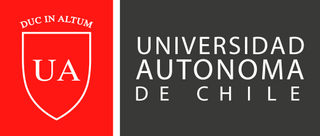
The Chilean Marine Corps is an entity of the Chilean Navy special forces which specializes in amphibious assaults.

Spanish Chileans refer more often to Chileans of post-independence Spanish immigrant descent, as they have retained a Spanish cultural identity. People of pre-independence Spanish descent are usually not considered Spanish Chileans even though they form a large majority of the Chilean population and have Spanish surnames and ancestry. This is because they rejected Spanish identity for the emergent Chilean one on the eve of national independence.
Scottish Chileans are Chileans of Scottish descent who came from Scotland and, in some cases, Scots-Irish people from Northern Ireland. A large proportion of Scottish Chileans are sheep farmers in the Magallanes region of the far south of the country, and the city of Punta Arenas has a large Scottish foundation dating back to the 18th century.

Since the mid-1990s, tourism in Chile has become one of the main sources of income for the country, especially in its most extreme areas. In 2005, this sector grew by 13.6%, generating more than US$500 million, equivalent to 1.33% of the national GDP.

The following is an alphabetical list of articles related to the Republic of Chile.

Chilean cinema refers to all films produced in Chile or made by Chileans. It had its origins at the start of the 20th century with the first Chilean film screening in 1902 and the first Chilean feature film appearing in 1910. The oldest surviving feature is El Húsar de la Muerte (1925), and the last silent film was Patrullas de Avanzada (1931). The Chilean film industry struggled in the late 1940s and in the 1950s, despite some box-office successes such as El Diamante de Maharajá. The 1960s saw the development of the "New Chilean Cinema", with films like Three Sad Tigers (1968), Jackal of Nahueltoro (1969) and Valparaíso mi amor (1969). After the 1973 military coup, film production was low, with many filmmakers working in exile. It increased after the end of the Pinochet regime in 1989, with occasional critical and/or popular successes such as Johnny cien pesos (1993), Historias de Fútbol (1997) and Gringuito (1998).

Jumbo is a Chilean hypermarket chain with a presence in Chile, Argentina, and Colombia. Founded in 1976 by Horst Paulmann, Jumbo is a subsidiary and pillar of the Cencosud business consortium, which also owns Santa Isabel, Disco, Super Vea, and Metro supermarkets, as well as Easy and Paris stores.

Easy Hogar y Construcción is a chain of South American homecenters. The company was founded in Argentina in 1993, in Chile in 1994 and in Colombia in 2007, by Chilean Conglomerate Cencosud.

The Lutheran Church in Chile is one of the two denominations of Lutheranism in Chile. It separated from the historical Evangelical Lutheran Church in Chile (IELCH) in 1975 due to differences in political perceptions of the pastors and bishops during the beginning of the military dictatorship led by Augusto Pinochet. It is a member of the Lutheran World Federation, which it joined in 1991. Most congregations are bilingual in German and Spanish.
The 2018 Campeonato Nacional, known as Campeonato Nacional Scotiabank 2018 for sponsorship purposes, was the 88th season of top-flight football in Chile. The season started on 2 February and ended on 2 December. Colo-Colo were the defending champions, having won the 2017 Transición tournament. Universidad Católica won their thirteenth title on the last day of the season following a 2–1 win at Deportes Temuco, who were relegated to the second tier with this defeat.

The Universidad Autónoma de Chile (UAutónoma) is a private Chilean university. It has campuses in Temuco, Talca and Santiago.

Álvaro Casanova Zenteno was a prominent marine painter and of historic naval warfare, a statesman his art is classified as realist, expressionist, classical, and romantic.
Claudio Andrés Álvarez González is a Chilean former footballer who played as a striker. Besides Chile, he played in Switzerland.









